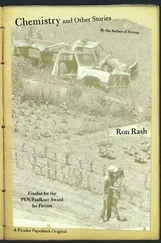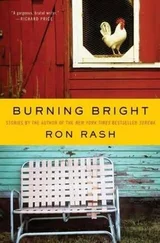They proceeded to the banquet hall. Serena scanned the huge mahogany table and found Webb at the far end near the fireplace. She took Pemberton's hand and led him to seats directly across from the newspaperman, who turned to his wife as the Pembertons sat down.
"Mr. and Mrs. Pemberton," Webb said. "The timber barons I've told you so much about."
Mrs. Webb smiled thinly but did not speak.
The waiters brought lentil and celery soup for the meal's first course, and the room quieted as guests lifted their spoons. When Pemberton finished his soup, he contemplated the Flemish tapestries, the three stone fireplaces and two massive chandeliers, the organ loft in the balcony.
"Envious, Pemberton?" Webb asked.
Pemberton scanned the room a few more moments and shook his head.
"Why would anyone be envious," Serena said. "It's merely a bunch of baubles. Expensive baubles, but of what use?"
"I see it as a rather impressive way to leave one's mark on the world," Webb said, "not so different from the great pharaohs' pyramids."
"There are better ways," Serena said, lifting Pemberton's hand in hers to rub the varnished mahogany. "Right, Pemberton."
Mrs. Webb spoke for the first time.
"Yes, like helping make a national park possible."
"Yet you contradict your husband," Serena said, "leaving something as it is makes no mark at all."
Waiters replaced the soup bowls and saucers with lemon sorbet garnished with mint. Next were filets of fresh-caught bass, the entrée served on bone china with burgundy circles, at the center GWV engraved in gold. Serena lifted a piece of the Bacarrat crystal, held it to the light to better display the initials cut in the glassware.
"Another great mark left upon the world," she said.
An intensifying reverberation came up the hall, and a few moments later a grand piano rolled into view, two workers positioning it just outside the main door. The jazz orchestra's pianist sat down on the bench as the singer stood attentively, waiting for a signal from Mrs. Cecil. The pianist began playing and the singer soon joined in.
One thing's sure and nothing's surer
The rich get richer and the poor get-children.
In the meantime,
In between time
"This song," Mrs. Webb said, "is it a favorite of yours, Mrs. Pemberton?"
"Not really."
"I thought perhaps Mrs. Cecil had it played in your honor. A way of cheering you up after your recent misfortune."
"You show more wit than I'd have thought, Mrs. Webb," Serena said. "I'd assumed you a dullard, like your husband."
"A dullard," Webb said, musing over the word. "I wonder what that makes Harris? He accosted me in the lobby. It seems he bought a salted claim."
"If he'd been forthright with us, we'd have figured it out," Serena said tersely.
"You may be right, Mrs. Pemberton," Webb said, "yet someone obviously counted on the fact that Harris would betray a partnership for his own self-interest."
"I think betrayal is a bit strong for what he did," Pemberton said.
"I don't," Serena said.
Webb waved his hand dismissively.
"Regardless, Colonel Townsend has accepted Albright's offer, and all the documents have been signed. That land was the lynchpin, you know. The whole project could have easily fallen through without it, but now all the parkland on the Tennessee side has been bought."
"Then that should be enough," Pemberton said. "You and your fellows can have the park in Tennessee and leave North Carolina alone."
"I'm afraid it doesn't work that way, Mr. Pemberton," Webb said. "This frees us to turn all our attention to North Carolina. With two-thirds of the proposed park land secured, eminent domain will be even easier to enact, maybe as soon as next fall from what Secretary Albright's told me."
"We'll have every tree in the tract cut down by then," Serena said.
"Perhaps," Webb admitted, "and it may take forty or fifty years before that forest will grow back. But when it does, it will be part of the Great Smoky Mountains National Park."
"Pemberton and I will have logged a whole country by then," Serena said.
For a few moments no one spoke. Pemberton looked for Harris and found him five seats away, laughing at some remark a young lady had made.
"But not this land," Webb replied. "As Cicero noted, ut sementem feceris ita metes."
"Do you know how Cicero died?" Serena said. "It's certainly something a scribbler such as yourself should be familiar with."
"I've heard the story," Webb said. "I'm not easily intimidated, Mrs. Pemberton, if that's your intent."
"I don't know the story," Mrs. Webb said to Serena. "I'd prefer your threats be explained."
"Cicero made himself an enemy of Antony and Fulvia," Serena replied. "He could have left Rome before they came to power, but he believed his golden words could protect him. As your husband is aware, they didn't. Cicero's head was displayed on the Rostra in the Roman Forum, where Fulvia took golden pins from her hair and pierced his tongue. She left them there until the head was tossed out to the dogs."
"A history lesson worth heeding," Pemberton said to Webb.
"No more so than how Antony himself died, Mr. Pemberton," Webb replied.
***
THE Pembertons did not get back to camp until one A.M., but Galloway was waiting on the front steps.
"We won't need to wake him after all," Serena said when she saw Galloway.
Pemberton turned off the engine. The light from the office porch was not enough to see Serena's face as he spoke.
"What Harris did, I'm not so sure we wouldn't have done the same under those circumstances. And the money, we didn't lose that much."
"He made us vulnerable," Serena said. "It's like an infection, Pemberton. If you don't cauterize it, then it spreads. It won't be that way in Brazil. Our investors will be a continent away." Serena paused. "We should never have allowed it to be otherwise. Just us."
For a few moments neither spoke.
"Isn't that what we want?" Serena asked.
"Yes," Pemberton said after another pause. "You're right."
"Whether it's right wasn't my question," Serena said, her voice soft, something in it almost like sadness. "Is it what we want?"
"Yes," Pemberton said, glad the darkness concealed his face.
Pemberton opened the car door and went on inside the house while Serena talked on the porch with Galloway. He poured himself a stout dram of bourbon and sat down in the Coxwell chair that faced the hearth. Though cool weather was still months away, a thick white oak log had been placed on the andirons, newspaper and kindling set around it. Serena's voice filtered through the wall, the words muffled but the tone calm and measured as she told Galloway what she wanted done. Pemberton knew if he could see Serena's face it would be just as placid, no different than if she were sending Galloway to Waynesville to mail a letter. He also realized something else, that Serena would be able to convince Lowenstein and Calhoun to invest in her Brazil venture. Like her husband, they would believe her capable of anything.
BEFORE THE FIRST STRINGHOUSE HAD BEEN set on Bent Knob Ridge, the dining hall or train track or commissary built, an acre between Cove Creek and Noland Mountain had been set off for a graveyard. As if to acknowledge the easy transition between the quick and the dead in the timber camp, no gate led into the graveyard and no fence surrounded it. The only markers were four wooden stobs. By the time they'd rotted, enough mounds swelled the acre to make further delineation of boundaries unnecessary. Occasionally, a deceased worker would have his body taken from the valley to a family graveyard, but the majority were buried in camp. The timber that had brought them here and killed them, and now enclosed them, also marked most of the graves. These wooden crosses ranged in elaborateness from little more than two sticks tied together to finely sawn pieces of cherry and cedar with names and dates burned into the wood. On these graves, sometimes on the crosses themselves, the bereaved always placed some memento. A few evoked a fatalistic irony, the engraved axe handle that felled the tree that in turn felled the owner, an iron-spiked Kaiser's helmet worn by a man struck by lightning. But most of what adorned the graves attempted to brighten the bleak landscape, not just wildflowers and holly wreaths but something more enduring-yellow-feathered hadicaws, Christmas ornaments, military medals trailing hued ribbons, on the grave itself bits of indigo glass and gum foil and rose quartz, which sometimes were cast over the loose soil like seeds for planting, other times set in elaborate patterns to spell what might be as discernable as a name or obscure as a petrograph.
Читать дальше












